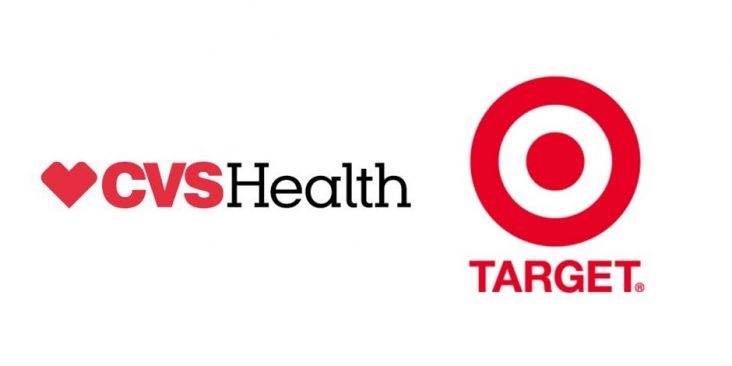Target turns over its pharmacy business to CVS, Walmart stays the course
by February 4, 2016 2:14 pm 3,728 views

Walmart competitor Target Stores sold its pharmacy business to CVS, the nation’s largest drug store chain, for $1.9 billion last year and this week the retailers held a grand opening of their first revamped CVS Pharmacy located inside a Target Store in Charlotte, N.C.
Target CEO Brian Cornell said all of the 1,672 pharmacies will be rebranded as CVS in the next six months. Target will also reap between $20 million to $25 million annually as rent from CVS in the deal.
Some wonder why Target would be willing to concede this growing segment of health and wellness opportunity amid an aging population and overall healthcare reform that has left more American consumers relying more on Over-the-Counter (OTC) remedies. Target does not break out its health and wellness sales as a percent of the retailer’s overall income. But in the retailer’s most recent annual report, Target said 25% of its annual sales are compromised of pharmacy, beauty, personal care, baby care, cleaning and paper products. That would be about $18 billion annually given the retailer’s total sales revenue of $72.62 billion in 2015.
In contrast, Walmart U.S. has made a conscious effort to expand it offerings within its health and wellness division, which is worth roughly 11% of its division sales on an annual basis or $31.7 billion as of last year. The retailer continues to add more OTC health and wellness products as well as diet products such as soy protein mixes and diabetic aids. While there has been some turnover in the heath and wellness division of Walmart Stores, the retailer says it remains committed to grow this line of business, dabbling in operating its own healthcare clinics.
When the Target deal was announced in July 2015, Wall Street analysts said the retailer was likely looking for a cash injection following the $5 billion write down it took from its failed Canada venture only months before. Cornell has said repeatedly that his plan to re-energize Target sales will include focusing on categories that Target can win such as apparel and home, while trimming back on others.
Carol Spieckerman, CEO of Spieckerman Retail in Bentonville, said Target isn’t really giving up the health and wellness business through its partnership with CVS, it is merely turning it over to a more experienced operator.
“Although from a pure revenue standpoint, the partnership could seem to take a lot of money out of Target’s coffers, the soft benefits may well make up for it,” Spieckerman said. “Target will be able to fully focus on the categories like home, apparel and kids products, and on categories like grocery that require a bit more of a learning curve.”
She said another upside is the CVS-branded pharmacies will still drive traffic to Target stores which should result in impulse buys and potential stock-up trips from CVS customers, some of whom might not otherwise consider Target.
Spieckerman doesn’t see this move having any real impact on Walmart’s already developed pharmacy business given that the foundation and customer base has already been built in. She said CVS’s more limited Target-based locations couldn’t be seen as more convenient than Walmart Supercenters or Neighborhood Market locations in the majority of cases.
Others agree that it makes sense for Target to outsource this business segment saying that Target likely wanted to stop running pharmacies because of the increasing complexity of the business.
“For Target, the deal is a win as it draws in more shoppers and enables it to focus more on its core categories. Adding a world-class pharmacy makes it more competitive with Walmart and a viable one-stop shop, said Ross Ely, president of ProLogic Retail Services.
“It will be also interesting to see how CVS pharmacies within Target stores coexist with ‘competing’ stand-alone CVS pharmacies in close proximity. It’s a benefit for CVS to grow its prescription business within a given market, but the overlap with Target for non-prescription products is substantial and may stress the relationship,” Ely added.
Cornell said Target customers will benefit from access to CVS drugs and clinical services while “at the same time it allows us to free up our resources” to focus on “signature categories” such as groceries, baby items and home goods.
CVS which gleaned 71% of its annual revenue from prescription drugs said it’s not worried about losing candy and makeup sales to Target. Experts agree that a higher share of the total prescriptions filled in the U.S. could put CVS in a stronger position when negotiating prices with drug manufacturers. The new locations gleaned by CVS with this deal also give the pharmacy group a bigger presence in the Pacific Northwest, where its footprint is small. This deal boosts CVS locations to nearly 9,500 stores.
“This strategic relationship with Target supports the highly complementary customer base, brand and culture we share,” Larry J. Merlo, the president and chief executive of CVS, said in a recent news release.
The patient records and prescriptions have been transitioned from Target to CVS and most insurance plans transferred seamlessly, the company said Tuesday (Feb. 2). Target customers need to be aware that the Target Pharmacy loyalty program has been discontinued, but the CVS loyalty program is now an option.
Target also ran 79-in-store clinics where nurse practitioners offered primary care of basic illnesses. These locations have also been rebranded as CVS Minute Clinics and are now being run by that retailer.
